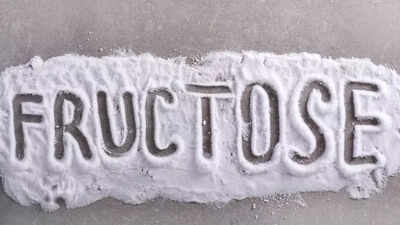ARTICLE AD BOX

Recent research has revealed a concerning link between added sugar in our diets and accelerated tumour growth. A study conducted by Washington University and published in Nature highlights that fructose, a common sweetener in processed foods, may fuel cancer progression indirectly.
While natural fructose in fruits remains largely safe, the excessive amounts present in sugary drinks, snacks, and ultra-processed foods pose significant health risks.
With fructose consumption rising dramatically over the past century, understanding its potential role in cancer is vital. Reducing added sugar intake is emerging as a crucial step for overall health and disease prevention.
What is fructose and how it boost tumour growth
Fructose is a simple sugar naturally found in fruits, vegetables, and honey.
It has long been considered a harmless sweetener. However, the new findings show that when consumed in excess, particularly through processed foods, fructose can contribute to cancer growth. Unlike glucose, which is metabolised throughout the body, fructose is primarily processed by the liver. This metabolic pathway can indirectly provide cancer cells with nutrients that fuel rapid tumour growth.The Washington University study uncovered an indirect mechanism by which fructose promotes tumour development:1. Liver metabolism: When you consume fructose, it is primarily processed in the liver rather than throughout the body like glucose.
The liver breaks down fructose into simpler molecules, which are then transformed into different forms of energy. This concentrated liver metabolism is a key step that differentiates fructose from other sugars and determines how it can indirectly support tumour growth.2. Conversion into lipids: During this metabolic process, the liver converts a significant portion of fructose into lipids, including triglycerides and specialized compounds called lysophosphatidylcholines (LPCs).
These LPCs are particularly important because they are readily absorbed by cells, providing cancer cells with a rich source of energy and raw materials for rapid proliferation.3. Nutrient delivery to tumours: Once formed, these lipids are released into the bloodstream and transported throughout the body. Tumour cells, which have a high demand for nutrients to support their fast growth, readily absorb these lipids.
This indirect supply of nutrients fuels tumour progression, allowing cancer cells to grow faster and become more aggressive, even if the fructose itself never directly interacts with the tumour.Interestingly, isolated cancer cells in a lab did not react directly to fructose. This shows that the body’s metabolic processes play a critical role in how diet affects disease.
The rise of added sugars in modern diets
Fructose consumption has skyrocketed over the past century.
In the United States, intake has increased 15-fold since the 1900s, mainly due to the widespread use of high-fructose corn syrup in processed foods and beverages. Sugary drinks, baked goods, and snacks now dominate the modern diet, making it difficult to avoid excess fructose.Natural fructose from fruits remains beneficial due to accompanying fibre, vitamins, and antioxidants. The problem arises from added sugars in ultra-processed foods, which can contribute to obesity, metabolic disorders, and now, potentially, cancer.
The health risks of added fructose
Excessive fructose consumption may have several negative effects on the body, including:Increased tumour growth: As demonstrated by the Washington University study.Metabolic issues: Excess fructose contributes to insulin resistance, fatty liver, and obesity.Cardiovascular concerns: High intake is linked to elevated triglycerides and blood pressure.It’s essential to distinguish between natural sugars in whole foods and added sugars in processed items.
Simple tips to reduce added sugars
| Food Category | High in added sugars | Healthier alternatives |
| Beverages | Sodas, sweetened teas | Water, unsweetened tea |
| Snacks | Candy, cookies | Fresh fruits, nuts |
| Breakfast | Sugary cereals | Oatmeal, eggs |
| Condiments | Flavoured syrups, sauces | Fresh herbs, lemon juice |
Other practical strategies include:
- Reading labels carefully: Look for hidden sugars like “corn syrup,” “sucrose,” and “maltose.”
- Cooking at home: Preparing meals from scratch reduces dependence on processed foods.
- Choosing whole fruits: They provide natural sugars alongside fibre, vitamins, and antioxidants.
Implications for cancer prevention
The study’s findings carry crucial implications for public health and cancer prevention:
- Reduce processed foods: Minimising intake of sugary snacks, beverages, and ready-to-eat meals can lower exposure.
- Monitor sugar content: Be vigilant about hidden sugars in sauces, dressings, and packaged foods.
- Support overall nutrition: Emphasise whole foods, vegetables, fruits, nuts, and lean proteins.
For those already diagnosed with cancer, avoiding added fructose may help slow tumour progression, though this should be done under medical guidance.Disclaimer: This article is for informational purposes only and does not constitute medical advice. Always consult a qualified healthcare professional before making any changes to your health routine or treatment.



.png)
.png)
.png)
















 1 day ago
6
1 day ago
6








 English (US) ·
English (US) ·